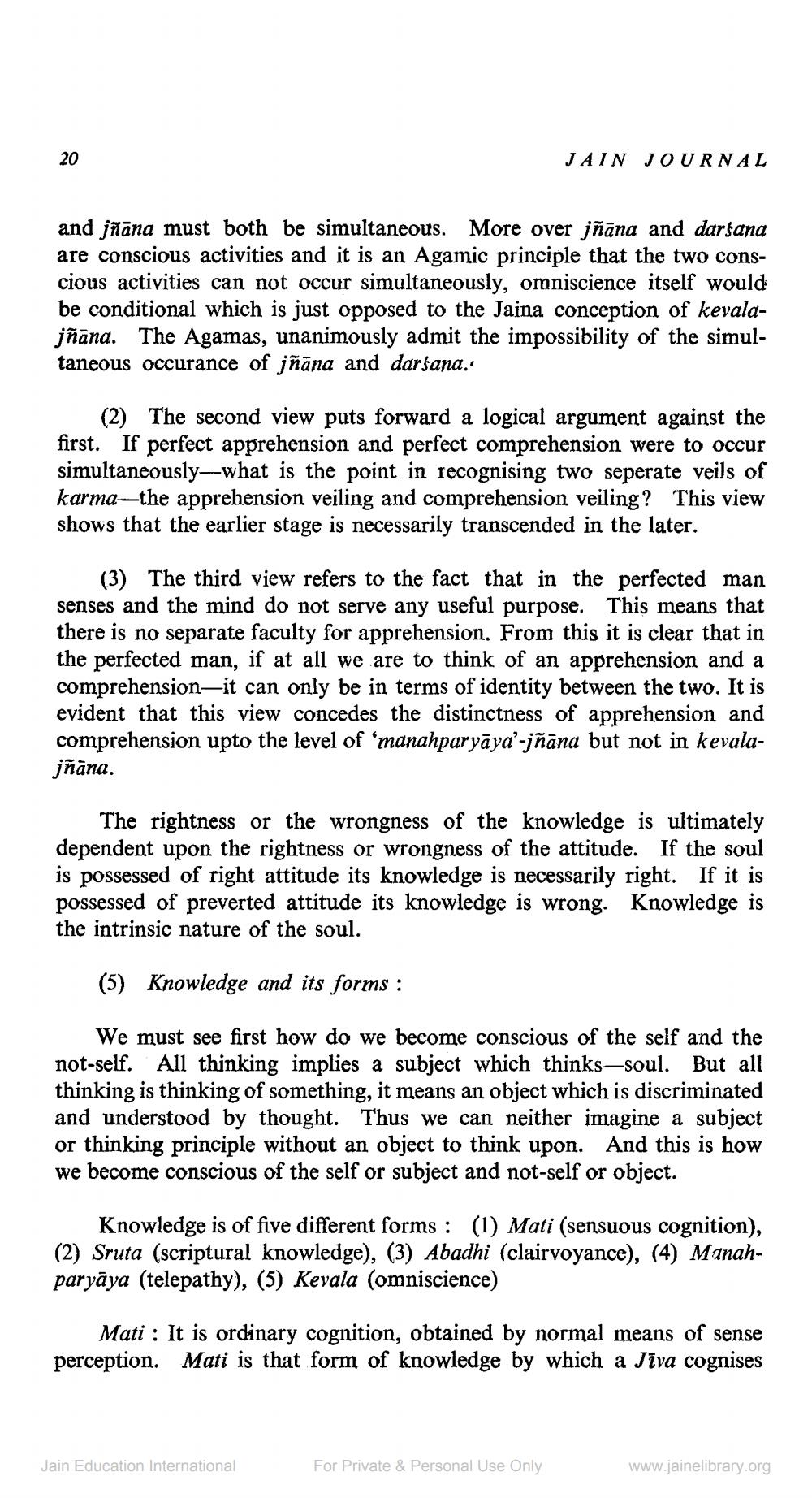________________
20
and jñāna must both be simultaneous. More over jñāna and darsana are conscious activities and it is an Agamic principle that the two conscious activities can not occur simultaneously, omniscience itself would be conditional which is just opposed to the Jaina conception of kevalajñāna. The Agamas, unanimously admit the impossibility of the simultaneous occurance of jñāna and darsana.
JAIN JOURNAL
(2) The second view puts forward a logical argument against the first. If perfect apprehension and perfect comprehension were to occur simultaneously—what is the point in recognising two seperate veils of karma-the apprehension veiling and comprehension veiling? This view shows that the earlier stage is necessarily transcended in the later.
(3) The third view refers to the fact that in the perfected man senses and the mind do not serve any useful purpose. This means that there is no separate faculty for apprehension. From this it is clear that in the perfected man, if at all we are to think of an apprehension and a comprehension-it can only be in terms of identity between the two. It is evident that this view concedes the distinctness of apprehension and comprehension upto the level of ‘manahparyāya'-jñāna but not in kevalajñāna.
The rightness or the wrongness of the knowledge is ultimately dependent upon the rightness or wrongness of the attitude. If the soul is possessed of right attitude its knowledge is necessarily right. If it is possessed of preverted attitude its knowledge is wrong. Knowledge is the intrinsic nature of the soul.
(5) Knowledge and its forms:
We must see first how do we become conscious of the self and the not-self. All thinking implies a subject which thinks-soul. But all thinking is thinking of something, it means an object which is discriminated and understood by thought. Thus we can neither imagine a subject or thinking principle without an object to think upon. And this is how we become conscious of the self or subject and not-self or object.
Knowledge is of five different forms: (1) Mati (sensuous cognition), (2) Sruta (scriptural knowledge), (3) Abadhi (clairvoyance), (4) Manahparyāya (telepathy), (5) Kevala (omniscience)
Mati: It is ordinary cognition, obtained by normal means of sense perception. Mati is that form of knowledge by which a Jiva cognises
Jain Education International
For Private & Personal Use Only
www.jainelibrary.org




